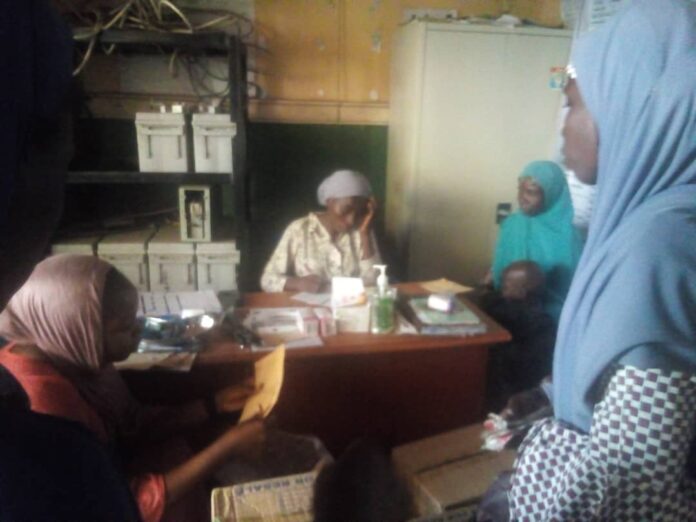… Health Centre Embraces Family Planning to Improve Maternal Health
By:Babagana Bukar Wakil, Maiduguri
Borno State’s media advocacy team recently brought attention to the increasing acceptance of childbirth spacing at the Zannari Primary Health Centre in Mafa Local Government Area. Residents were observed patiently queuing for family planning services, a sign of the community’s growing commitment to fostering healthier family structures.
The event, held at the Zannari Primary Health Centre, was part of a broader advocacy campaign focused on raising awareness about family planning and the benefits of childbirth spacing. This initiative has received widespread support from both health officials and residents, who are increasingly recognizing its potential to improve family health.
Mrs. Bawa Gana Liman, the officer in charge of the facility and also the Maternal and Child Health (MCH) Coordinator for Mafa, expressed her gratitude for The Challenge Initiative’s (TCI) involvement in these advocacy efforts. She emphasized that TCI’s work has significantly raised awareness about childbirth spacing and empowered local couples to take proactive steps in planning their families.
According to Mrs. Liman, TCI’s continued visits and programs have instilled confidence in many families about the benefits of childbirth spacing. This, she believes, is a crucial step in reducing maternal and infant mortality rates, which are particularly high in areas with limited healthcare access.
In addition to appreciating TCI, Mrs. Liman also commended the dedication of healthcare workers who have been instrumental in educating women on family planning. She highlighted the commitment of staff members who arrive punctually and provide counseling services to women eager to learn more about safe family planning options.
Community mobilizer Falmata Bukar and healthcare provider Hauwa Ramat, both working with TCI, echoed Mrs. Liman’s sentiments. They acknowledged the unwavering support from the community, noting that residents have actively participated in the program and shown a strong interest in family planning methods without any hesitation or resistance.
The impact of this initiative is evident in the positive feedback from community members. Hafsa Rabiu, a mother of five, and Hauwa Bulama, a mother of eight, shared their own stories during interviews. Both women described childbirth spacing as vital to maintaining a healthy family, and they emphasized how it has improved their own health and well-being.
These women urged other couples to embrace family planning, highlighting that it contributes not only to better health outcomes but also to a more stable environment for raising children. They believe that childbirth spacing allows parents to provide better care and attention to each child, thereby enhancing family life overall.
As the program continues, advocates hope that childbirth spacing will become a norm in the community, helping to address the challenges of maternal and child health in the region.




